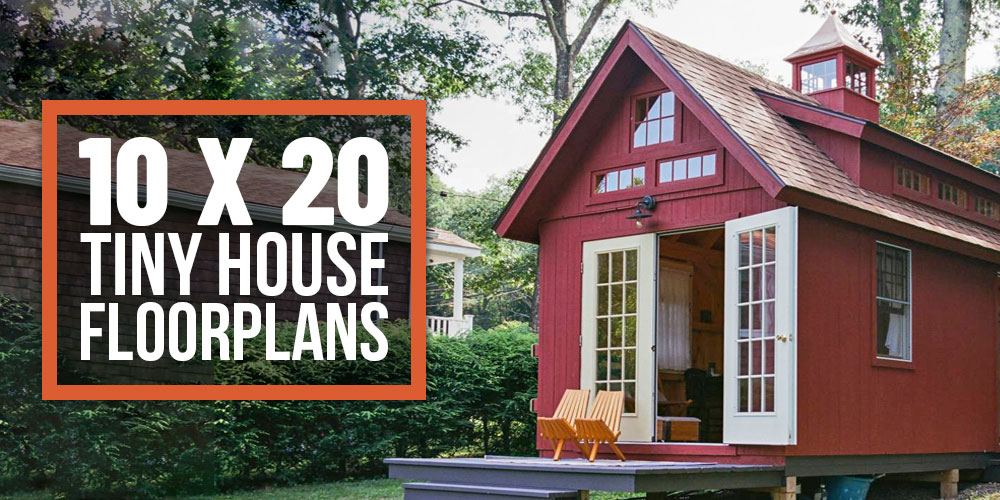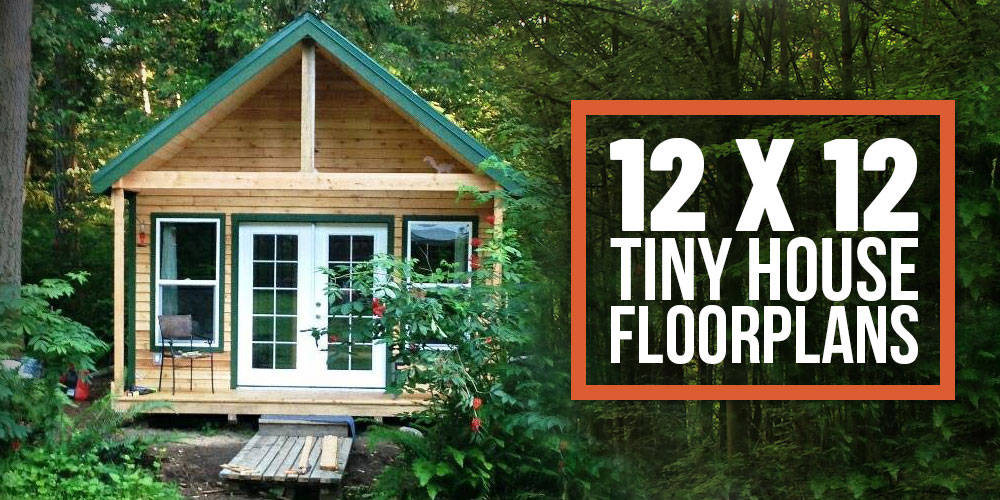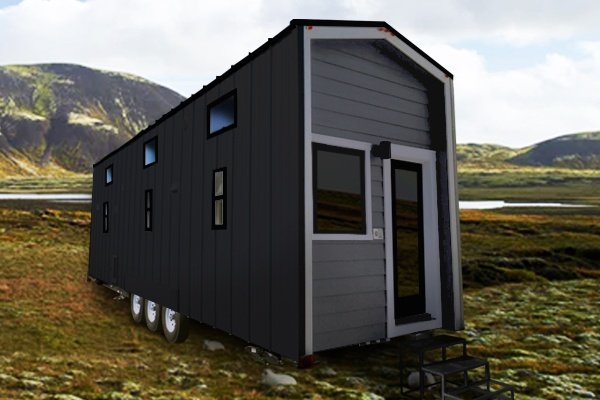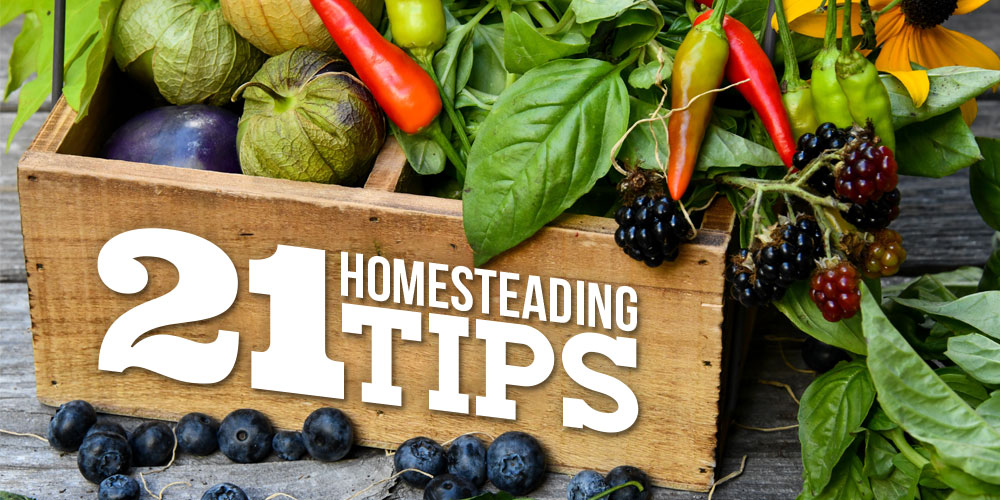


NAVIGATION
I have no regrets about my decision to build a homestead many years ago, but I do wish that someone had shared these simple homesteading tips with me when I was just getting started. Whether your homestead is in an urban backyard or on a large plot of land in the country, modern homesteading is surprisingly nuanced. Let’s make it simple again by exploring these 21 tips I wish I’d heard before I started homesteading.
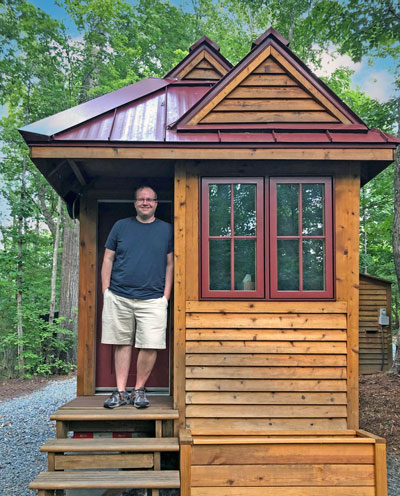

Hi, I’m Ryan
When I first started developing my own homestead, I learned a lot by trial and error. Sure, these homesteading tips would have come in handy back then, but I kept track of what went right, and my homestead has thrived by adhering to these simple homesteading tips that are effective, practical, and easy to implement.


21 Key Homesteading Tips To Set You Up For Success


Yes, I had to learn some of these homesteading tips the hard way, but there’s no need to reinvent the wheel! Some of these homesteading tips might be common sense, but you’d be surprised how easy it is to plow ahead in the excitement of a new venture without pausing to consider questions like, will I actually eat this once it’s grown? Or does it matter what the chicken coop looks like if I don’t have enough leftover money to buy chickens?
If you’re a newbie to homesteading, consider these tips your homesteading 101. Let’s dive in!
1 Grow What You Actually Like To Eat
If you remember just one of my homesteading tips, make it this one. Growing your own food for the first time is exciting, I get it, but don’t get so caught up in the limitless possibilities of what you can grow that you forget you don’t actually like eating half of it.
2 Don’t Compromise On Your Water
The number one killer of a homestead dream is not having clean water from a good well. Trust me on this one. If you have to haul water, you’ll resent it, and that’s the number one thing that causes people to give up their dream of a simpler life. Just because something is simple, doesn’t make it easy, and something as vital as clean water should be as easy to access as possible.
3 Mulch Heavily And Often
Mulching is hands-down the best way to keep weeds at bay and improve your soil. You can save money by making your own mulch using wood shavings, tree leaves, freshly cut forage crops, hay, or grain straw. I always advise using straw whenever possible because it doesn’t have weed seeds in it.
4 Remember That Animals Always Need Attention
Animals sound fun, and they are, but they also require a lot of attention. They’ll need food and water every day, and if you want to have time away from your homestead for vacations or even just visiting family, someone will still need to be there tending to your livestock. This is one of the good tips for homesteading that people forget to tell you, but now you know and can plan accordingly.
5 Have A Perc Test Done And Get Septic And Well Permits
A perc test will let you know how well water is absorbed by the types of soil on your land, which can hugely affect your septic system, your structural stability, and even your gardening success. This test basically involves digging several holes around the area you want to install your septic tank, filling the holes with water, and leaving them overnight to see how well the water is absorbed.
Often, you can get someone from your county government to come out and perform this test, but you can also hire an independent engineer. A perc test, along with a septic and well permit, should be a contingency on any offer to buy land because it really determines the land’s usefulness to you for homesteading.
6 Get A Quote For Bringing Power To Your Land
Related to the tip above, while you’re in the due diligence period of purchasing land, talk to the power company and get a representative to come out to the land and give you a quote on bringing power to the land. Sometimes getting power to land is free, but other times it can cost up to $100,000!
7 Keep Your Start-Up Costs Low
It might be tempting to start everything at once and try a million different things. After all, it’s exciting to build a homestead. Or maybe you’re caught up in making your homestead look just right and have a huge list of high-end materials to purchase. I’d say your best bet is going to be keeping your start-up costs as low as possible. Ideally, you’ll even come in under budget, leaving yourself some breathing space to expand and perfect things later. For now, make do with what you have.
8 Start Your Homestead With A Strict Budget
Along those lines, I think it’s vital to sit down and set your own personal homesteading budget before you even get started. It’s easy to get overwhelmed by all of the options and overspend. This is such a good tip for homesteading because the process of getting started is also a time when excitement could trump your common sense, but if you have a budget to adhere to, you’ll have a much easier time following the plan. Take it from a homesteader who has systematically eliminated all of his debt and most living expenses. A homesteading budget is worth it, and you’ll feel the rewards in the long run.
9 Always Start Small
In addition to starting with a budget, one of the most practical tips for homesteading is to start small. This simple tip kept me from making a lot of crushing mistakes with my time and finances at the beginning of my homesteading journey. You don’t need to take on too much at once. You can always add on later, trust me.
10 Know Which Foods You Should Or Shouldn’t Dehydrate
Food preservation is a great way to keep your homestead sustainable, allowing you to enjoy the rewards of your homegrown produce all year long. There are several techniques for preserving your produce, but personally, I’m a fan of dehydrating over other preservation methods because it is a safe and relatively easy way to preserve just about anything.
11 Get Familiar With Common Livestock Diseases
While I can talk about the benefits of homesteading all day long, it really isn’t a glamorous lifestyle. Never is this more apparent than when your chickens, goats, or cows get sick and you need a crash course in the proper ways to care for them. A simple way to prepare in advance is to research the possible diseases and symptoms for each type of livestock you add to your homestead before you bring them onto your land.
12 Bring In Extra Income Where You Can
While it’s not required to be successful, turning your homestead into something of a small business can help you break even on your homesteading costs and even help you save up future money to invest in your gardens, coops, and equipment. If you’re crafty, this could come in the form of homemade items based on what your homestead produces. If you want to keep it basic, it could be as simple as selling excess eggs, vegetables, fruit, or meat to your friends and community.
Simple Homesteading Tips And Tricks For Bringing In Extra Income
- With Bees: sell honey and make lip balms and lotions out of beeswax
- With Goats: make and sell cheese, yogurt, lotions, and creams
- With Herbs: make and sell your own natural herbal remedies
- With Chickens: sell eggs, incubate eggs, and sell chicks
- With Cows: make and sell cheese, yogurt, ice cream, or beef
- With Fruit: open your land up for fruit pickers or sell baked goods
13 Get Out Of Debt As Quickly As Possible
I mentioned before that I’ve gotten myself out of debt and eliminated a good portion of my living expenses. I did this, in part, through homesteading, but choosing to become a minimalist and living in a tiny home also had a lot to do with that. You don’t have to do any of these things to get out of debt, but you will need to take a hard look at your lifestyle and see what changes you can make that will help you cut back on spending and pay off debt as quickly as you can.
14 Focus On Function, Not Fashion
You probably know exactly where I’m going with this after all the tips on starting small and keeping costs down, but I still feel like this simple homesteading tip is important to mention. As thrilling as it is to envision a large red barn surrounded by meticulous farmland, pretty white fencing, and a chicken coop that looks like a mini house for your hens, most homesteads don’t actually look idyllic. It is a functioning workplace after all.
What’s most important is a sturdy, dry structure that can keep your animals warm, comfortable, and healthy. Sometimes this will look nice, and sometimes it will look like a hodgepodge shack made from five types of scrap wood and mismatched shingles.
15 Start With A Compost Bin Or Pile
Composting is one of the easiest and simplest aspects of homesteading, but it’s also vital to your garden’s sustainability. Using different composting methods, and even making compost tea to pour over your plants, can really help your garden thrive without you having to purchase any fertilizer or Miracle Grow products. Put your leftover fresh produce and used coffee grounds in your compost. If you don’t have the ground space for a compost bin, you can do a countertop bin or get into vermicomposting.
16 Build Chicken Nesting Boxes Cheaply From Scraps
Like just about anything on your farm, chicken nesting boxes can be made from repurposed plastic or wood you have laying around your homestead. The cheaper you can make the small things, the better for your budget.
17 Be Patient With Yourself And Your Homestead
Learning new skills and growing new life takes time. Don’t expect to learn everything you need to know overnight, or to somehow just have a built-in intuition for homesteading. Agriculture is a time-cultivated skillset, with enormous benefits that can sometimes crawl along. Slow down. Enjoy the process. And open yourself up to a simpler way of life in the process.
18 Use A Seed Starting Calculator
Whether or not you’re a planner by nature, it’s great to have an idea of when to plant your seeds in order to harvest them by a given time. Whether you’re looking to plan the best time to plant certain seeds, or calculate how long it will take your vegetables to be ready to harvest, a seed starting calculator (several of which are available online) will come in handy.
19 Build A Greenhouse (Especially If You’re In A Cold Climate)
Greenhouses can really useful, especially if you’re planning a winter garden and want your vegetables and flowers to thrive through the colder months. You can purchase a fully assembled greenhouse or build your own with what you have.
20 Can You Eat A More Plant-Based Diet?
Switching to a more plant-based diet can not only improve your health, but it can also lower your food costs as you start growing your own vegetables and fruits on your homestead. I really enjoy cooking and experimenting with the fresh veggies from my garden, and this simple homesteading tip has helped me get a lot more creative with my recipes.
Perhaps the most important part of homesteading is the way working with nature connects you to the people around you. Whether you’re working alongside family or friends or simply making connections with other homesteaders, farmers, and farmers’ markets in your community, building these relationships is priceless.
The people who are supportive of your efforts, whether by working alongside you or just giving you advice when you ask for it, are a vital part of your homesteading process, and you’ll be forming new kinds of bonds and connections of great value.
Resources For Putting These Homesteading Tips Into Action


I could, quite honestly, keep talking forever about different homesteading tips and tricks that I’ve learned over the years — tips I wish I’d heard before I started homesteading in the first place. The ones I’ve shared here, though, are enough to give you a strong start.
The more passionate you become about homesteading, the more you’ll want to learn and grow as a homesteader. Here are some more good resources to expand your homesteading knowledge.
The 21 homesteading tips I’ve shared with you today are some of the most foundational tips there are, and if you keep them front and center as you start a homestead of your own, you’ll be on the road to success in no time.
Your Turn!
- If you could do one thing differently when you started homesteading, what would it be?
- What essential tips for homesteading did I miss?
























